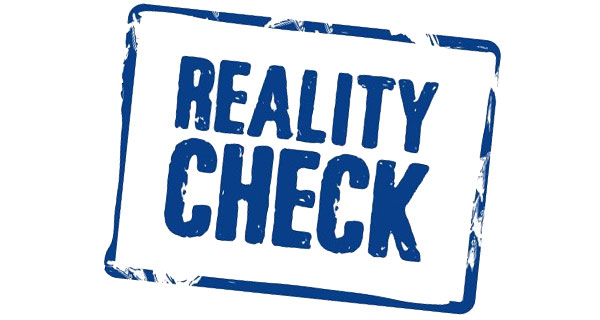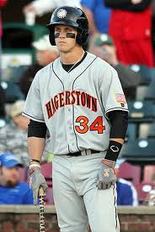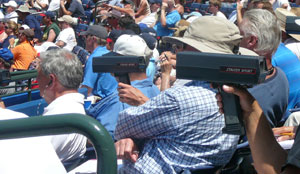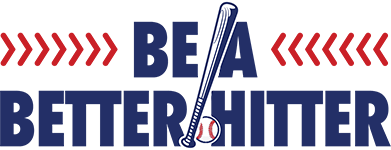4 Reality Checks for Young Baseball Players

Two real stories:
I was speaking to a New York Mets scout out in the parking lot before a game. He told me when he goes to a game to scout a player, he likes to sit in the parking lot before the game and watch for the prospect. He went on to say that he already knows the kid has some skills or he wouldn’t be there to see him. What he’s looking for is the player’s baseball attitude and conduct both on and off the field. If he’s at a high school game, he watches the player get off the bus. Is he put together – shirt tucked in, hat on straight, no jewelry, looking alert and ready to play. That is the first test and a very important one. He mentioned recently the player he was there to scout got off the bus with his shirt untucked and hat on backwards. He left, never watching the kid play. His words were,
“There are at least 10 other kids out there as good if not better than him. I don’t have time to mess with someone who doesn’t take this game serious or respect it.”
At another game, I was sitting next to a college scout with a list of a couple players he was watching on a particular team. One of the players that was on his list struck out swinging and on the way back to the dugout, next to the stands where we were sitting, the player started dropping the f-bomb and cursing about the ump and that he…well I’ll just say he said he was bad. The scout and I obviously heard him and the scout promptly scratched the players name off his list. Then he turned to me and sarcastically said “Well wasn’t that nice to hear.”
I’ve heard and have had the same conversation with other pro and college scouts.

Reality Check 1:
 As a player you might be good, really good but reality check – you’re still in high school. You are no where close to being in “the show”. Look at Bryce Harper, a stud in every way but part of what held him back was/ is his attitude, or if you want to be politically correct, they say “maturity” – but it is getting better. Also never forget, no matter how good you are, there is always someone better. Strive to better yourself. Get better at the game and outside the game. Act like a pro on and off the field. The really good players don’t tell people or act up to bring attention to themselves – they just show it in their play. They let their play speak for them.
As a player you might be good, really good but reality check – you’re still in high school. You are no where close to being in “the show”. Look at Bryce Harper, a stud in every way but part of what held him back was/ is his attitude, or if you want to be politically correct, they say “maturity” – but it is getting better. Also never forget, no matter how good you are, there is always someone better. Strive to better yourself. Get better at the game and outside the game. Act like a pro on and off the field. The really good players don’t tell people or act up to bring attention to themselves – they just show it in their play. They let their play speak for them.
Reality Check 2:
- 1 of every 10 high school baseball players will go on to play college baseball at some level. Whether it’s D1, D2, D3, NAIA, or JUCO. That means if you are a high school baseball player, you have about a 10% chance of playing college baseball.
- Less than eleven in 100, or about 10.5 percent, of NCAA senior male baseball players will get drafted by a Major League Baseball (MLB) team.
- Approximately one in 200, or approximately 0.5 percent of high school senior boys playing interscholastic baseball will eventually be drafted by an MLB team. By the way, about 50% are pitchers.
- An example, the Cincinnati Reds active roster (before September 2012).
- 12 Pitchers
- 7 infielders
- 4 outfielder’s
- 2 catchers
- That is 13 non pitchers vs. 12 pitchers!
So if you’re not a pitcher, your odds are even lower.
Reality Check 3:
 I’m referring to college scouts/ recruiters here. All scouts/ recruiters are not the same. Scouting is subjective. Two scouts/ recruiters can watch the same player in the same game and have different reports. It depends on what they are looking for and their needs at the time. Secondly, almost every college scout isn’t the head coach. It is a volunteer assistant or another “lower level” assistant. They are given strict guidelines of what to look for. If the player doesn’t exactly “fit” into that little box of requirements then that player isn’t going to get interest. The young scout isn’t going to take any chances on a player that’s close but not quite what he’s been instructed to look for.
I’m referring to college scouts/ recruiters here. All scouts/ recruiters are not the same. Scouting is subjective. Two scouts/ recruiters can watch the same player in the same game and have different reports. It depends on what they are looking for and their needs at the time. Secondly, almost every college scout isn’t the head coach. It is a volunteer assistant or another “lower level” assistant. They are given strict guidelines of what to look for. If the player doesn’t exactly “fit” into that little box of requirements then that player isn’t going to get interest. The young scout isn’t going to take any chances on a player that’s close but not quite what he’s been instructed to look for.
Reality Check 4:
Fair or unfair, DI schools have a “formula” that a player has to fit before they look at a player. Here are just a few general benchmarks as an example:
- They player is polished and comes from a larger High School that is considered to be one of the best in the area.
- The player has won awards such as All-Area or All-State
- If you aren’t at least 6 foot or taller, they probably won’t look at you. Yes there are a few exceptions but they are EXCEPTIONS.
- Right handed pitchers – 87-90mph (independently verified)
- Left handed pitchers – 85-87mph (independently verified)
- Catchers – Pop Time: 1.95 and below consistently
- Middle Infielders – 60 Yard Dash: 6.8 or below/ Velocity from the INF: 83mph+
- Corner infielders – Batting Power Numbers & RBI’s/ 200lbs+ (More so for 1st base vs. third base)
- Outfielders: 60 Yard Dash: 6.6/ Velocity from the OF: 86mph+ (some leeway if you can hit)
The usual “pecking” order is DI/ JUCO then DII then DIII. Yes, JUCO is right there with DI.
Summary:
You never know who is watching. Some scouts are easy to spot and others aren’t. The college or pro scout might be at the game watching another player and as a bonus, guess what; he’s going to see you too. Again, I’ve seen scouts who were at a game and were impressed by another player and the other player got recruited.
The bottom line is to be prepared every game as if there is someone in the stands watching you; on and off the field. Once you put that uniform on, you’re a target to be seen. Take every advantage of that. When you’re off the field and wearing the uniform, make sure you’re put together – hat on straight, shirt tucked in and any jewelry taken out. When you’re on the field, play the best you can (granted you will have off days). Hustle on and off the field, don’t argue with the ump, don’t cuss loudly or within ear shot of anyone (say it under your breath if you have to with a smile), don’t throw your helmet or bat at any time in anger or disgust, etc. – you get the point.
If you’re good you’ll get noticed. If you act cocky, arrogant, disrespectful or just not “put together” while in uniform, you’ll get noticed too but for the wrong reasons.
This isn’t meant to depress you, it’s meant to show you that if you want to go all the way, you need to take it serious early. Your skills will get you noticed but your attitude and conduct on and off the field can derail your aspirations.

I am in a charter school, and I love the game. I put all my effort in getting better, and I am 13 years old. Since I’m going to a smaller high school, a charter school, I am worried about my future in baseball after reading your excellent article, 4 Reality Checks for Young Baseball Players. Will I have to transfer to a bigger high school? I admire the game, and also have respected alot. I am a good, consistent, respecting baseball player, and I dream of playing it for my career. What are your suggestions?
Thanks, Tyler
Thanks for the comment. So you’re asking “Does size of high school matter and should I transfer to a bigger school?” Well, school size does play a big part but your physical size and your skill level ranks higher. Since you’re 13, you have plenty of time to develop your skills. As far as your physical size – that’s just genetics and since you’re 13 you have time to grow. Don’t get caught up in having to play for a DI school. DII, DIII, and NAIA schools will recruit you if you’re good and pro scouts do look for players there too. My main advise is to focus on what you can control – that’s your grades and your development. Also if you want to play in college be open to all divisions.
Hi Matt, I have a few questions.
First I will introduce myself. I am a 17 year old Australian and I am in love with this game. I have played for roughly 3 years which, as I am sure you are aware, already sets me back quite a fair amount. I have some natural athleticism and that has given me the opportunity to be chosen by a college scouting company that sends athelets from Australia to the U.S. to attend college on a sports scholarship. I leave in August of 2018 and am currently unaware of what college I will be attending(I see my options at the end of the 2017 year).
My dream is to play, not just professionally, but in the Majors. I just want to pick your brain in asking what I should be educating myself with and how I should be doing so. What drills I can use and anyways I could home my abilities and overall make myself a better player.
Also, understandably, having a dream such as this and
being in Australia there is a lack of resources but I do my best not to let this or any other hard factors have an effect on my making it a reality.
Thanks for advance in taking the time to read through this and to reply.
Sent you a response. Look forward to letting you”pick my brain”